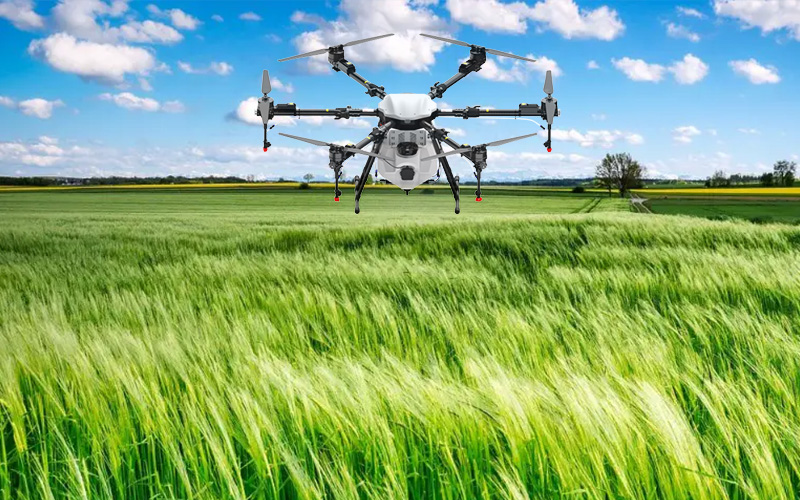By : TZX UAV
Click : 5153
With the prevalence and development of global low-altitude economy,Agricultural drones have become a powerful helper for the development of new agriculture,The main benefits of agricultural drones in modern new agriculture are numerous and significant. Here are some key advantages:

Precision Farming:
Agricultural drones enable precision farming by allowing farmers to apply inputs such as seeds, fertilizer, and pesticides with pinpoint accuracy.
This reduces waste and environmental impact, as farmers can use detailed data collected by drones to create customized maps that guide the application of inputs to specific areas.
Crop Monitoring:
Equipped with high-resolution cameras and sensors, drones can provide farmers with real-time images of their fields.
These images can be analyzed to detect diseases, pests, and nutritional deficiencies in crops, enabling early intervention and minimizing crop loss.
Efficient Resource Allocation:
By analyzing the data collected by drones, farmers can make informed decisions about resource allocation.
This includes identifying areas that require additional fertilizer or water and targeting those areas specifically, ensuring efficient use of resources.
Enhanced Safety:
Drones can carry out tasks such as crop dusting and inspecting tall plants, which can be dangerous for humans to perform.
This reduces the risk of accidents and injuries, enhancing safety in agriculture.

Environmental Benefits:
The precision and efficiency of drone technology lead to reduced use of fertilizer and pesticides, mitigating soil and water pollution.
Drones can also be used to monitor and manage irrigation systems, ensuring efficient water use and reducing waste.
Cost Savings:
By reducing waste and optimizing resource use, drones help farmers save costs.
This can lead to increased profitability and sustainability for agricultural operations.
Increased Productivity:
The ability to monitor crops in real-time and make informed management decisions can lead to increased productivity.
Farmers can optimize planting, harvesting, and other agricultural activities based on the data provided by drones.
Flexibility and Adaptability:
Drones are small and lightweight, making them easy to transport and deploy.
They can be used in a variety of agricultural settings, including fields, orchards, and vineyards.
Data-Driven Decision Making:
The data collected by drones can be used to inform decision-making at all levels of the agricultural supply chain.
This includes farmers, agricultural cooperatives, and government agencies.
Innovation and Technological Advancement:
The use of drones in agriculture represents a significant technological advancement.
It encourages innovation and the development of new technologies and practices in the agricultural sector.
Agricultural drones offer a wide range of benefits to modern new agriculture, including precision farming, crop monitoring, efficient resource allocation, enhanced safety, environmental benefits, cost savings, increased productivity, flexibility and adaptability, data-driven decision making, and innovation and technological advancement. These benefits make drones an essential tool for farmers and agricultural operations seeking to improve their productivity, sustainability, and profitability.
